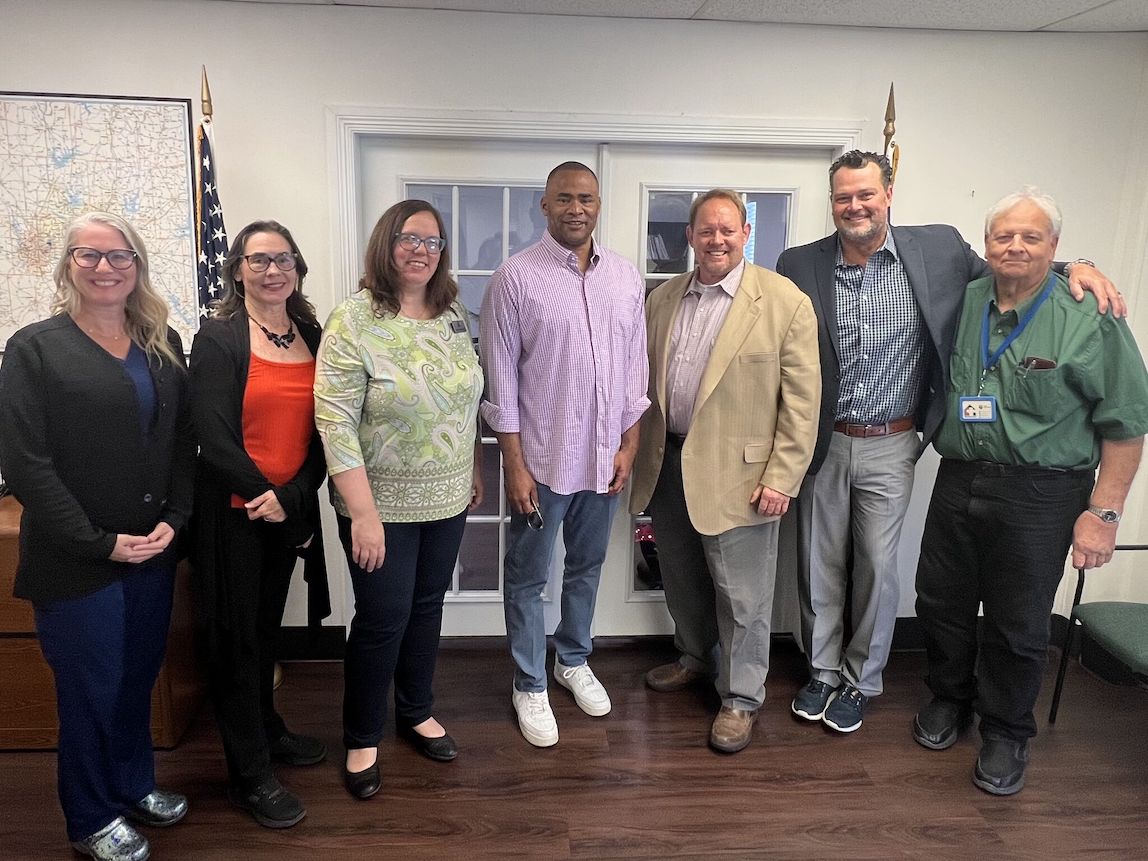DALLAS — When U.S. Rep. Marc Veasey (D-Texas) visited Baxter Management, a regional DME provider serving Dallas and the eastern region of the country, he did more than give a speech.
“He worked a shift and got to see what it’s really like to be in our business,” says Laurie Bachorek, director of Rehab at Baxter Management. “We showed him how to navigate the extensive delivery paperwork required by insurance, and he went out with our rehab tech to deliver a power chair.”

Left to right: Tanya Sweeney, RT; Cyndi LaChappelle-Mathis, admin assistant; Laurie Bachorek, director of Rehab; Rep. Marc Veasey (D-Tex) – District 33; Wayne Grau, exec director, NCART; Ted Metcalf, US Rehab; and Paul Retcofsky, ATP.
The hands-on visit marked the culmination of several years of outreach that began during a 2014 trip to Veasey’s Washington, D.C., office. Bachorek was pleasantly surprised when the Congressman’s staff accepted the invitation for an in-person field visit—particularly given his influential role on the House Energy and Commerce Committee.
Baxter Management and other DME stakeholders have been closely watching Veasey’s support for H.R. 2005, legislation proposing to extend competitive bidding blended rates to non-rural areas. “I’m not as optimistic about that particular piece of legislation at this point,” Bachorek acknowledges, “but we did get Marc’s support and he did sign on.”
Like many in the industry, she is now focused on the forthcoming Final Rule from CMS, which is expected to reshape the competitive bidding landscape. “Right now, we are waiting for CMS’ Final Rule, and the consensus is that it will be a huge hit to our industry,” she says. “However, I am hopeful that the comments submitted to CMS will give them pause. They originally wanted to restart the competitive bidding program in January, but there is simply no time left to prepare bids and complete the process, so it’s definitely going to be delayed.”
Despite the policy uncertainty, Bachorek remains optimistic about the future of home-based care. The aging of the baby boomer population, she says, is driving long-term demand for DME and especially for complex rehab technologies.
“It’s going to build gradually, but demand is coming,” she said. “Boomers are aging, and there’s no getting around the need for the services we provide. They don’t want to be in hospitals or facilities. They want to be at home—and we are uniquely positioned to meet that demand.”
Legislators such as Veasey increasingly recognize the clinical and financial value of HME, particularly in areas like complex rehab where Baxter Management has deep expertise. However, Bachorek believes the industry still has work to do in demonstrating its full economic impact.
“The message that HME saves Medicare money by keeping patients at home isn’t resonating,” she says. “We don’t have the data. We need to show the numbers—not just talk about them.”
As Bachorek sees it, visits like Veasey’s are invaluable in bridging that gap. By stepping into the daily realities of DME operations, policymakers gain a clearer understanding of the logistical, financial, and regulatory burdens providers face—and why stable, sustainable policy is essential for maintaining patient access.

